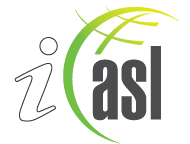

|
|
IASL Research Abstracts |
IASL Research Abstracts: 146
Findings: For undergraduate students, there is a gulf between resources provided and their use. The need for a logical progression of information skills from secondary to higher education was identified and a strategy developed to meet this need. Preliminary inquiry identified three areas of investigation to accomplish the strategy: the role of the school librarian and support staff in supporting skills development, initial and inservice teacher training, and e-resource provision across the sectors.
Abstract: The school librarian is responsible for facilitating access to electronic resources, creating an awareness of these formats, and ensuring that the pupils and staff have the skills to exploit them effectively. Traditionally, these skills have been developed within the individual secondary and tertiary educational sectors. In the United Kingdom, skills acquisition and the implications of resource provision are being considered across secondary and tertiary education. The paper opens with an account of a study of the provision and use of electronic resources in tertiary education in the U.K. and then explores the implications of research into skills transfer between secondary schools and the tertiary sector. See:
Lonsdale, R. & Armstrong, C. (2004). Crossing the educational divide: Issues surrounding the provision and use of electronic information resources in secondary and tertiary education. In P. Moore, E. Howe, R. Lonsdale, R. McChaon & D. Singh (Eds). IASL Reports: From Aesop to e-book: The story goes on (pp. 60-72). Erie, PA: International Association of School Librarianship.
Subject Categories: 10, 11, 17
